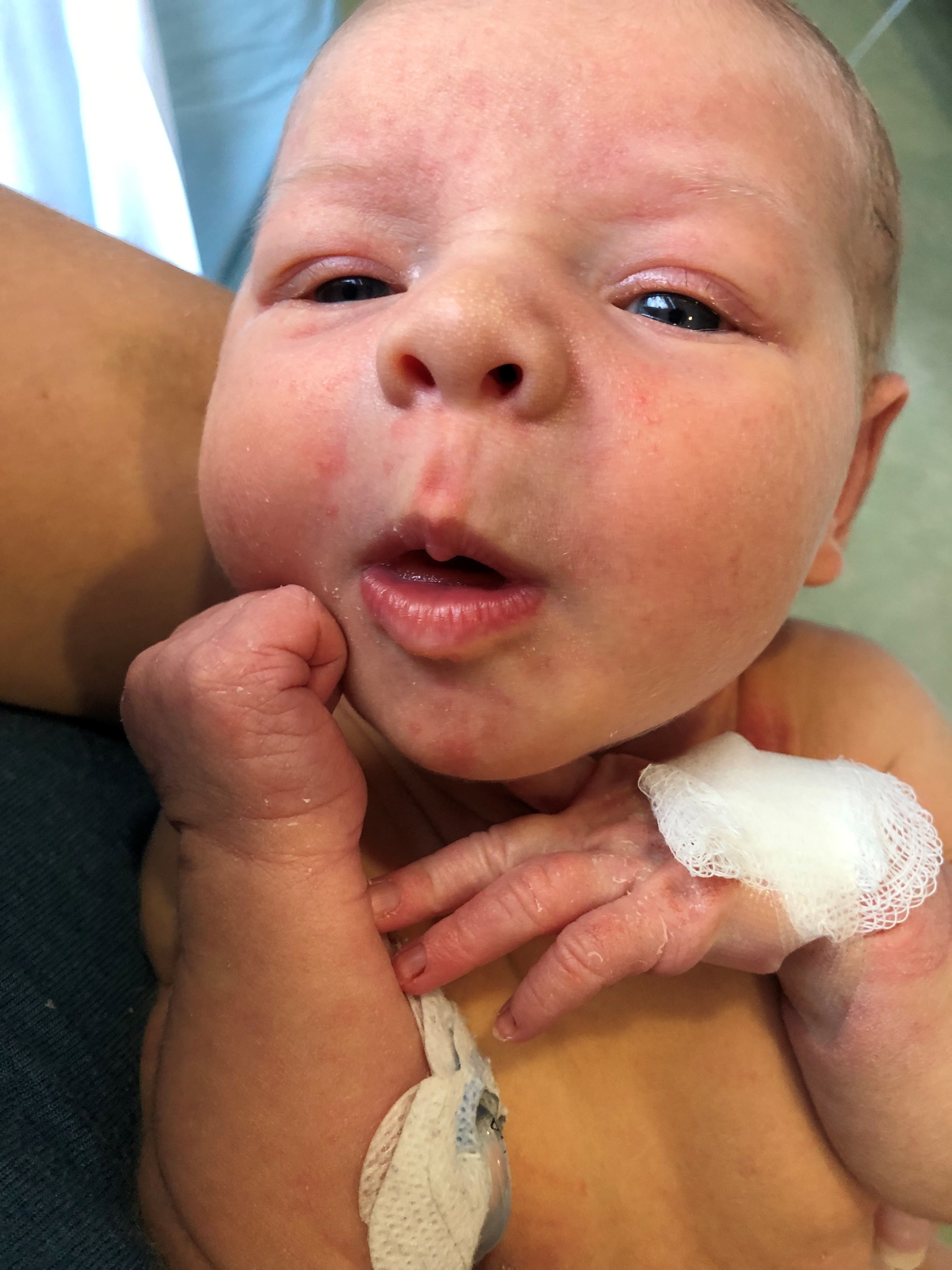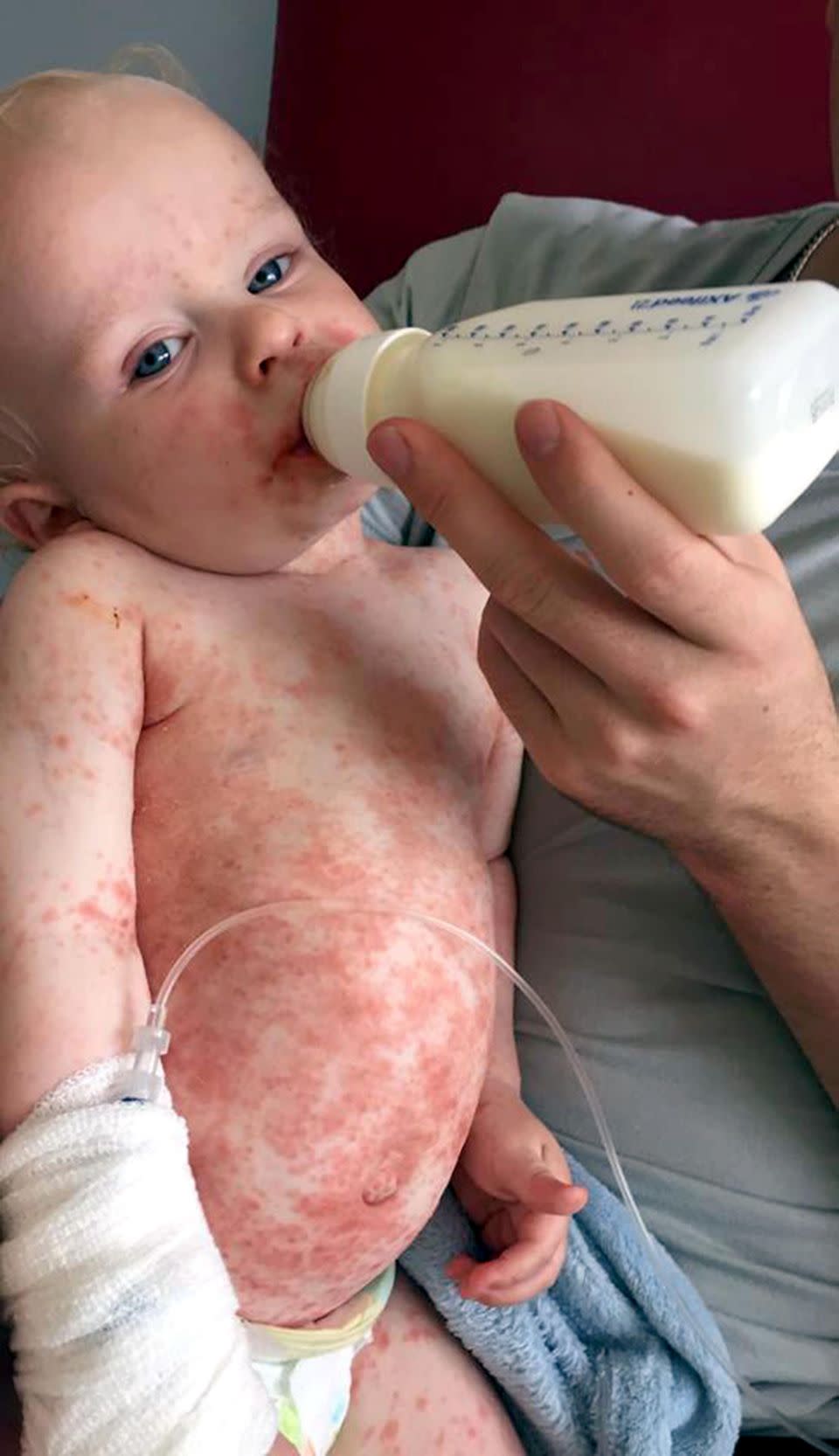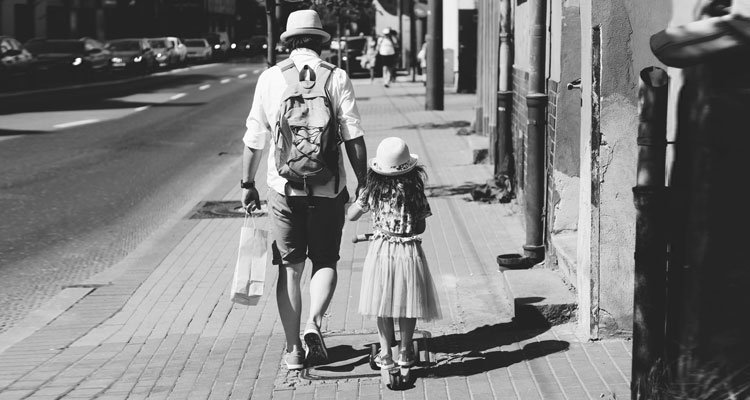Accidentally kissed your baby while having a cold sore? Immediate action is crucial.
Cold sores can transmit the herpes simplex virus to your baby. Protecting your little one from potential complications is important. Understanding the risks is the first step. Cold sores are caused by the herpes simplex virus, which is highly contagious.
Babies have weaker immune systems. This makes them more vulnerable to infections. Although not every exposure leads to transmission, caution is necessary. This guide will help you navigate this situation. Learn about symptoms, prevention, and treatment options. Taking the right steps can ease your worries and ensure your baby’s health. Let’s explore how to handle this delicate situation effectively.

Credit: livesmartohio.osu.edu
Immediate Actions After A Kiss
Quickly clean your baby’s skin with soap and water. Consult a doctor for advice on antiviral treatment. Monitor for signs of irritation or infection.
When you realize you’ve kissed your baby with a cold sore, panic might set in. But don’t worry, there are immediate actions you can take to ensure your baby’s safety. Acting swiftly and thoughtfully can make all the difference. Let’s dive into what you should do right away.###Assessing The Situation
First, take a deep breath and assess the situation. Is your cold sore active or healing? Active cold sores can be more contagious. If it’s active, you need to be extra cautious.Consider the time between the kiss and noticing the cold sore. If it was immediate, your next steps are crucial. It’s also important to remember that cold sores are caused by the herpes simplex virus, which can be harmful to babies.###Cleaning The Area
After assessing the situation, focus on cleaning the area. Gently wash your baby’s skin where the kiss occurred. Use mild soap and warm water; avoid harsh chemicals.You might wonder if wiping is enough. While it helps, thorough washing reduces the risk of transmission. Pat the area dry with a clean towel, ensuring not to rub too hard.Consider using antiviral creams as a preventive measure. Consulting your pediatrician can provide additional guidance. They can recommend products safe for your baby’s sensitive skin.By taking these immediate actions, you are actively protecting your baby. But remember, consulting a healthcare professional is always a wise step. They can offer reassurance and expert advice tailored to your situation.Understanding Cold Sores
Kissing a baby with a cold sore can spread the virus. Keep an eye on any symptoms. Consult a doctor for advice if needed.
Understanding Cold SoresIf you’ve ever been caught in the moment and kissed your baby while you had a cold sore, you might be worried about the consequences. Understanding cold sores can help you know what to watch for and how to keep your little one safe.It’s important to know what causes cold sores and how they spread. This knowledge will empower you to make informed decisions and take preventative steps in the future.Causes Of Cold Sores
Cold sores are caused by the herpes simplex virus (HSV-1). This virus is highly contagious and is usually spread through direct contact, like kissing.Even if a sore isn’t visible, the virus can still be present in your saliva. This means you might not always know when you’re contagious.Stress, fatigue, or a weakened immune system can trigger an outbreak. Have you ever noticed a sore popping up just when you’re feeling run down?Symptoms To Watch For
Cold sores typically begin with a tingling or itching sensation around the lips. This can quickly develop into a painful blister.The blisters eventually burst and form a crust, which can take several days to heal. During this time, the virus can be easily spread.If your baby develops a sore in the same area, it’s time to consult a pediatrician. Early intervention is key to managing and minimizing the impact on your baby.Remember, knowledge is your best defense. By understanding cold sores, you can protect your baby and manage your own health effectively. What steps will you take to ensure this virus stays at bay?Risks For Infants
Having a cold sore can be worrisome for parents, especially around infants. Cold sores are caused by the herpes simplex virus, which can pose risks to babies. Understanding these risks helps in taking care of your little one.
Herpes Simplex Virus Concerns
The herpes simplex virus is common, yet it can be serious for infants. Babies have weaker immune systems, making them vulnerable to infections. If a parent has a cold sore, the virus can spread easily. This may lead to neonatal herpes, which is rare but dangerous.
Potential Complications
Neonatal herpes can cause severe health problems in infants. Possible complications include skin infections and fever. In severe cases, it can affect the baby’s brain and other organs. Early signs may include blisters or irritability.
Parents should watch for symptoms and seek medical advice promptly. Treatment can help reduce risks and ensure the baby’s safety. Always consult a healthcare provider if you suspect exposure.
Monitoring Baby’s Health
After realizing you’ve kissed your baby with a cold sore, your mind races with concerns about your little one’s health. It’s crucial to monitor your baby’s well-being closely in the days following the incident. Observing their health can help you catch any signs of discomfort or infection early, ensuring timely action and peace of mind.
Signs Of Infection
Keep an eye out for any unusual symptoms that may indicate an infection. Look for redness, swelling, or small blisters around your baby’s mouth. These could be signs of a herpes simplex virus transmission. Notice if your baby is fussier than usual or appears uncomfortable, especially during feeding.
Has your baby suddenly become irritable or started crying more often? These changes might suggest something is amiss. Pay attention to their behavior and any physical changes. Being proactive can help you address potential issues swiftly.
Tracking Fever And Irritability
Fever is a key indicator of infection, so it’s essential to monitor your baby’s temperature regularly. A mild fever might not be alarming, but a persistent one warrants a visit to the pediatrician. Use a reliable thermometer and note any temperature fluctuations.
Irritability is another sign to watch for. If your typically calm baby seems unusually cranky, take note. Changes in sleep patterns or appetite can also signal discomfort. Trust your instincts; you know your baby’s usual temperament better than anyone else.
Would it be beneficial to keep a health journal? Documenting symptoms and changes can provide valuable insights for your healthcare provider. This proactive approach ensures nothing slips through the cracks during your baby’s check-up.
Remember, you are not alone in this. Many parents have faced similar concerns, and sharing experiences can be comforting. Do you have any stories from friends or family that provided reassurance? Utilizing community advice can be a helpful support system during this time.
When To Seek Medical Help
Kissing a baby with a cold sore can be risky. Seek medical help if your baby shows signs of irritation, fever, or blisters. Early medical attention can help prevent complications and ensure your baby’s safety.
If you’ve kissed your baby while having a cold sore, you might be feeling worried. Cold sores, caused by the herpes simplex virus, can be concerning for infants. While mild symptoms might resolve on their own, it’s crucial to know when medical help is necessary. Understanding the signs that warrant professional advice can bring peace of mind and ensure your baby’s health is safeguarded.###Consulting A Pediatrician
It’s always a good idea to touch base with your pediatrician if you’re concerned about cold sores. They can provide reassurance and guidance tailored to your baby’s needs.Your doctor might suggest monitoring your baby for any changes in behavior or health. Look out for signs like fever, irritability, or unusual rashes. If you notice any of these, don’t hesitate to reach out.Doctors can also offer specific advice on keeping your baby comfortable. Simple steps like ensuring they are well-hydrated and avoiding any direct sunlight exposure could be recommended.###Emergency Situations
While most cases may not require urgent care, some signs should prompt immediate action. If your baby develops a high fever or appears unusually lethargic, these could be red flags.Notice any blisters appearing on their body? It’s time to act quickly. Blisters, especially near the eyes or other sensitive areas, need immediate medical attention.Remember, trusting your instincts is crucial. If something feels off, seeking emergency care is always the best course of action. Your baby’s well-being is paramount, and it’s better to be safe than sorry.Have you ever found yourself in a similar situation? What signs made you decide to seek help? Sharing your experiences can offer comfort and guidance to others facing the same dilemma.
Credit: www.yahoo.com
Preventive Measures
Kissing a baby with a cold sore can be risky. Wash your hands and avoid direct contact with the sore. Monitor the baby for any signs of infection.
When you realize you’ve kissed your baby with a cold sore, it’s natural to worry. Preventive Measures can help you manage the situation and prevent it from happening again. By taking a few simple steps, you can protect your child and ensure their health is not compromised.Avoiding Future Incidents
One effective way to prevent future incidents is to understand the nature of cold sores. They are caused by the herpes simplex virus, which is most contagious during an outbreak. Therefore, avoid kissing your baby when you feel a tingling sensation or notice a blister forming.Being proactive is key. Always keep antiviral creams or medications handy. They can reduce the duration and severity of an outbreak. You might also consider consulting your doctor for advice on managing cold sores effectively.Regularly check for signs of an outbreak. This will help you act quickly and avoid any physical contact that could transmit the virus. If you’re unsure, err on the side of caution.Educating Caregivers
It’s important to inform anyone who might have close contact with your baby about cold sore risks. Grandparents, nannies, and babysitters should be aware of what cold sores look like and when they are contagious.Create a simple guide or checklist. This can include symptoms to watch for and actions to take if a cold sore appears. It might seem unnecessary, but this proactive approach can prevent potential transmission.Encourage open communication. Ask caregivers if they’ve ever had cold sores and discuss preventive measures together. This ensures everyone is vigilant and your baby remains safe.Have you ever considered how much of an impact a small oversight can have on your child’s health? Taking these preventive steps not only protects your baby but also provides peace of mind.
Home Remedies And Care
Concerned parents often worry about cold sores near their babies. Immediate action includes gently cleaning your baby’s skin with warm water. Consult a pediatrician for further advice and monitor your baby for any unusual symptoms.
Kissing your baby with a cold sore can be worrying. You might feel anxious about possible transmission. It’s important to take immediate and gentle care. Home remedies can help soothe and protect your baby. These remedies are natural and safe. They provide relief and support healing. Let’s explore effective methods to care for your baby at home.Safe Practices For Babies
Always wash your hands before touching your baby. This reduces the risk of spreading the virus. Use a clean cloth for your baby’s face. Avoid sharing utensils or towels with your baby. Keep your cold sore covered with a bandage. This limits direct contact. Ensure your baby’s toys are clean. Regular cleaning prevents germ spread.Natural Relief Options
Consider using a cool, damp cloth on your baby’s skin. This can help soothe any irritation. Breastfeeding moms should continue feeding. Breast milk contains antibodies that boost your baby’s immunity. Ensure your baby stays hydrated. Offer water or formula regularly. Try coconut oil for natural moisturizing. It keeps your baby’s skin soft and protected. “`
Credit: www.instagram.com
Emotional Support For Parents
Worried after kissing your baby with a cold sore? It’s crucial to act quickly. Clean the area gently and watch for symptoms like redness or fever. Consult a pediatrician for further guidance to ensure your child’s safety and health.
### Emotional Support for ParentsDiscovering that you’ve kissed your baby with a cold sore can be a distressing experience. It’s normal for parents to feel overwhelmed with worry and guilt. Providing emotional support is crucial in navigating these feelings and ensuring you stay strong for both yourself and your baby.####Managing Anxiety
Anxiety can creep in quickly when you realize the potential risks associated with cold sores. It’s essential to manage these feelings effectively. Deep breathing exercises can help calm your mind and body.Another technique is to focus on what you can control. You can’t change the past, but you can take steps to monitor your baby’s health. Keep a watchful eye for any symptoms and be ready to consult a healthcare professional if needed.Remember, you are not alone. Many parents have faced similar situations and found a way through. Sharing your experiences with others can be cathartic and reassuring.####Seeking Guidance
When in doubt, seek guidance from trusted sources. Contact your pediatrician for advice on the best course of action. They can provide specific recommendations tailored to your baby’s needs.Online parenting communities can also be a valuable resource. Engaging with others who have been in your shoes can offer comfort and practical tips. It’s reassuring to know that help is just a click away.Consider reaching out to a counselor if feelings of guilt and anxiety persist. Professional help can provide strategies to cope with stress and bring peace of mind.How do you handle unexpected parenting challenges? Your approach could make all the difference.Frequently Asked Questions
What To Do If I Accidentally Kissed My Baby With A Cold Sore?
Wash the baby’s face immediately and monitor for any symptoms. Contact a pediatrician for guidance and reassurance. Avoid future contact during outbreaks to prevent transmission. Maintain good hygiene and inform caregivers about the situation for safety.
What To Do If Your Baby Was Exposed To A Cold Sore?
Consult a pediatrician immediately if your baby was exposed to a cold sore. Watch for symptoms like fever, irritability, or blisters. Avoid kissing the baby, and ensure everyone washes hands frequently. Early medical intervention is crucial to prevent complications. Always prioritize your baby’s health and safety.
What Are The Odds Of A Baby Getting A Cold Sore?
Babies have a low risk of getting cold sores. Herpes simplex virus type 1 causes cold sores. Direct contact with an infected person can transmit the virus. Parents should avoid kissing babies if they have active sores. Proper hygiene and prevention measures reduce the risk.
What Does Hsv-1 Look Like On A Baby?
HSV-1 in babies typically appears as small blisters or sores around the mouth or lips. These blisters are often painful and may ooze or crust over. It’s crucial to seek medical attention if you suspect HSV-1 in a baby to prevent complications.
Can Kissing A Baby With A Cold Sore Be Harmful?
Yes, it can spread the virus to the baby. Newborns are sensitive to infections.
Conclusion
Caring for your baby with a cold sore is crucial. Keep a close watch for any unusual symptoms. Consult your doctor if you notice changes in your baby’s health. Avoid kissing your baby until the cold sore heals completely. This helps prevent spreading the virus.
Prioritize your child’s safety and health. Always wash your hands before touching your baby. Use separate towels and utensils to minimize risks. Educate family members about these precautions. Your baby’s well-being is the top priority. Stay informed and proactive to ensure their safety.


